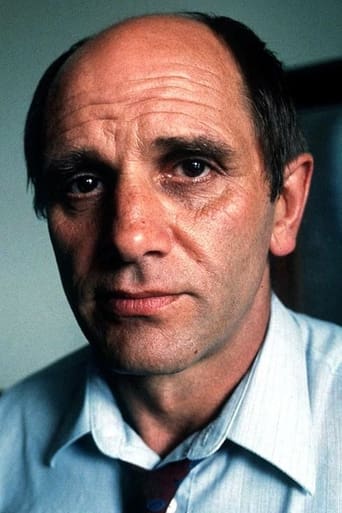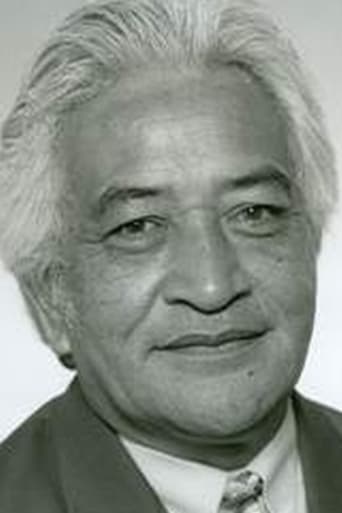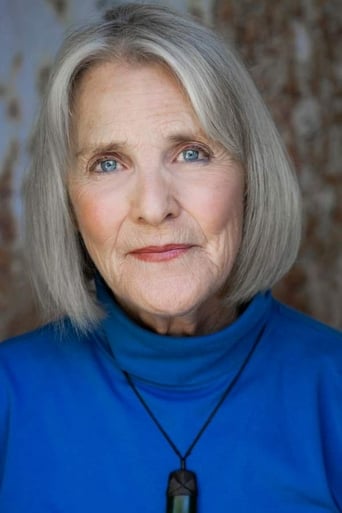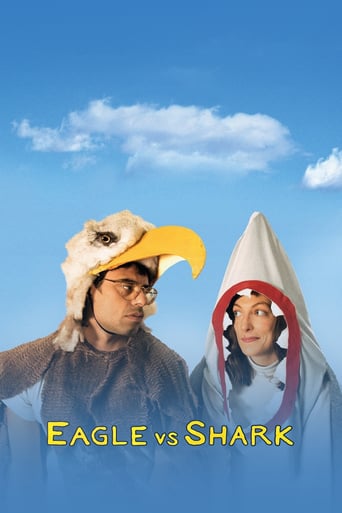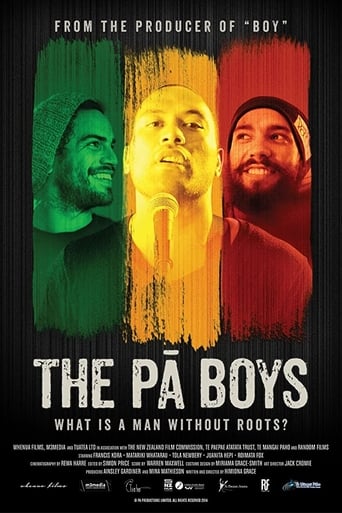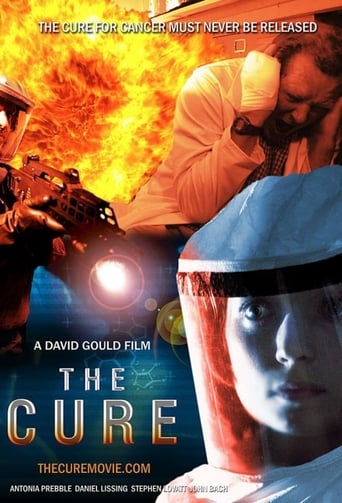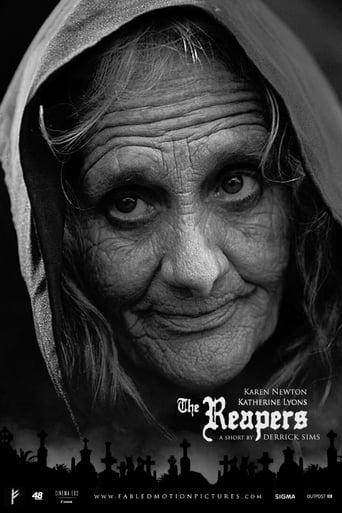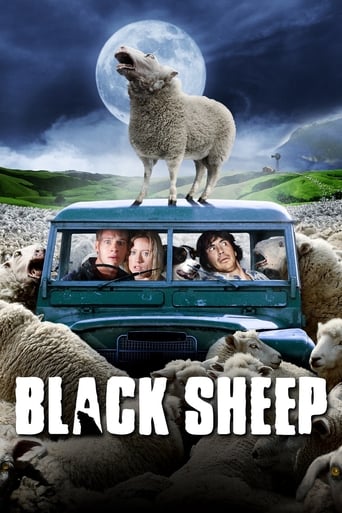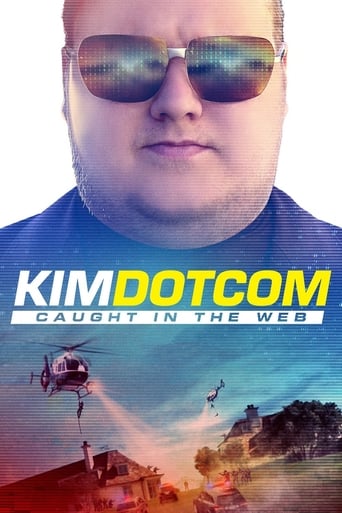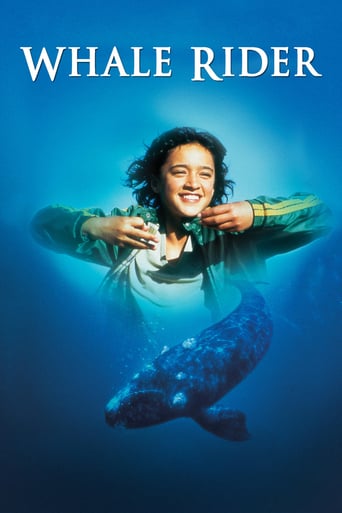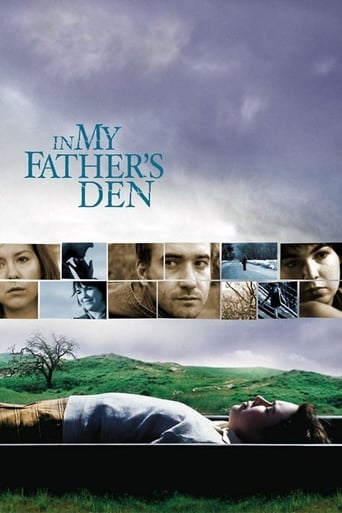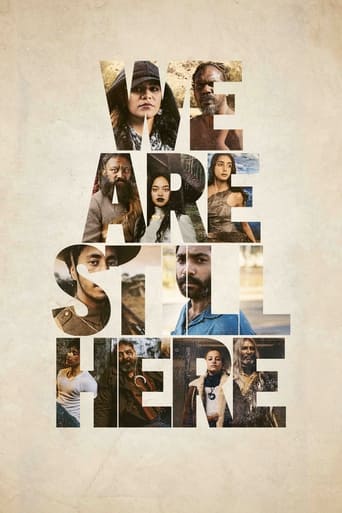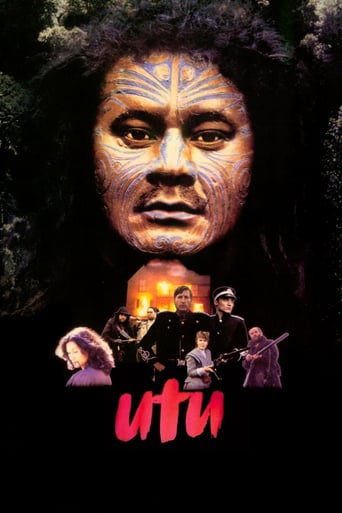
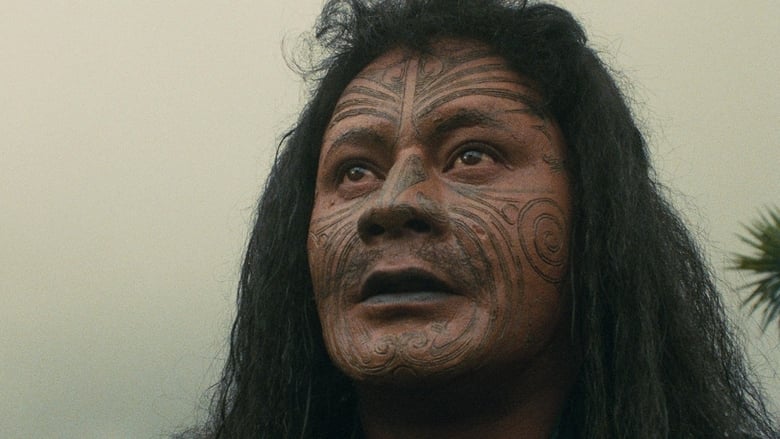
Utu (1984)
In New Zealand in the 1860s the native Maori people fought the British colonials to keep the land guaranteed to them by treaty. The warrior Te Wheke fights for the British until betrayal leads him to seek utu (revenge). The settler Williamson in turn seeks revenge after Te Wheke attacks his homestead. Meanwhile Wiremu, an officer for the British, seems to think that resistance is futile.
Watch Trailer
Cast


Similar titles
Reviews
Director and writer Geoff Murphy who also created another classic flick, Under Siege 2: Dark Territory 1995 has created another gem in Utu.Starring Bruno Lawrence who was also in the classic television series, Frontline 1994-1997.Also starring Anzac Wallace who was also in another classic historical flick, Rapa Nui 1994.Also starring Tim Elliot who was also in an episode of the classic television series, Spyforce 1971-1973.I enjoyed the violence and the settings.If you enjoyed this as much as I did then check out other classic historical flicks, 300 2006, Apocalypto 2006, Ben-Hur 1959, Bodyguards and Assassins 2009, Braveheart 1995, Centurion 2010, Dersu Uzala 1975, Gladiator 2000, Ironclad 2011, Joan of Arc 1999, King Arthur 2004, The Last Emperor 1987, The Last of the Mohicans 1992, Lucky Country 2009, The Tragedy of Macbeth 1971, Mad Dog Morgan 1976, Mongol: The Rise of Genghis Khan 2007, The Musketeer 2001, Ned Kelly 1970, Pathfinder 1987, Pathfinder 2007, The Proposition 2005, Quest for Fire 1981, The Seekers 1954, Solomon Kane 2009, Spartacus 1960, Tristan + Isolde 2006, The Vikings 1958, The Dead Lands 2014, The 13th Warrior 1999, The Revenant 2015, Embrace of the Serpent 2015, Aguirre, the Wrath of God 1972, Viking 2016, The Naked Prey 1965 and The White Dawn 1974.
While this movie may somewhat accurately depict callous British imperialism towards native populations, and is sympathetic to the trod-upon Maori, "Utu" (Sumerian for sun, but for the Maori it means revenge) ultimately fails as a story and film because so few of the more prominent foundations that the film lays at the beginning are actually paid off at the end.For instance, we see the settler Williamson (admirably played by Bruno Lawrence) understandably go mad in his quest to avenge his wife's death and loss of his home at the hand of Te Wheke, going so far as to construct a frightening, custom four-barrel shotgun. Yet does he actually end up using it in the end? He finally gets the opportunity to execute his wife's killer, only to inexplicably back down and instead allow a Maori soldier working for the "pakeha" (non-Maori, mostly for white man) to do the deed, apparently mesmerized by Maori chanting and suddenly becoming sympathetic to a culture and cause that is not his own.Lt. Scott (well played by Kelly Johnson) is torn between his New Zealand roots (a "pake" born on the North Island) and his adherence to military life, but understandably seeks his own revenge against Te Wheke for the loss of his Maori lover. As we've seen in other films about the long arm of British imperialism, a soldier's military training ultimately wins out in the end. Yet he too backs down from his final judgment and chance to avenge, to allow the Maori soldier (revealed to be Te Wheke's brother) to perform the execution of Te Wheke.Te Wheke himself is driven mad by his vengeance against his former employer (the military), when he came across the destruction of a Maori village at the beginning of the film. At first he is depicted as a cunning warrior out to save his fellow Maori, but he makes some very stupid mistakes in the end, ones that defy explanation and logic (unless you buy the "revenge always trumps intelligence" line). The soldiers are thus shown as ultimately superior intellects in warfare, and while they may have been, Te Wheke was taken so easily, almost casually so, after months of successful evasion. And why did he turn upon his own people? Does madness make him do this? If so, it's too easy and ultimately unbelievable.As a prior reviewer posted, why was the Maori village destroyed at the beginning of the film? Should the viewers assume that this is because the British are on a campaign to wipe out the Maori to take their land? Or was it done as some sort of vengeance for supposed affronts to military authority? But this is never explained, so we must take it at face value that the British imperialists were pigs, yet superior nonetheless to the blundering Maori.Bravo to the filmmakers for exploring the pointlessness and waste of British imperialism and of the concept of revenge, and for showing the dichotomy of Maori killing their own kind in service to a foreign military (as was seen done in India, Africa and countless other island nations and countries during the 1800's British imperialistic campaigns throughout the world), and in alluding to the latent homosexuality of one British officer, further denigrating the indigenous culture they are trying to oppress.But moviegoers seeking to learn more about Maori culture and history should definitely look for other, more competent and complete sources.
While it is slightly confusing on a first viewing for someone with scant background knowledge about the setting, Utu is still a largely entertaining, interesting and well made film with an odd tonal combination of a western, a war film, a Charles Bronsonish revenge flick and touches of macabre comedy.Utu is inspired by true events in New Zealand circa 1870. We focus on a military-oriented motley crew of English, Caucasian New Zealanders, or Pakeha, and natives of Polynesian descent, or Maori. The general atmosphere in the film is similar to the pioneer atmosphere of some U.S.-oriented westerns set in the late 19th Century. The plot is catalyzed by fighting among the English, Pakeha and Maori with difficult-to-discern lines of division. To an extent, it seems that these oppositional groupings must have been somewhat chaotic in reality, and especially Maori are shown flitting from side to side.The important points for the film, though, are that we're shown the massacre of a Maori village by Caucasians in the beginning, and we're shown the Maori Te Wheke (Anzac Wallace) happening upon the aftermath of the massacre, whereupon he swears revenge, or "utu", on the white men for their misdeeds. His chief opponent is Lieutenant Scott (Kelly Johnson) a very young Pakeha (who looks a lot like a young Jay Mohr) with a very multicultural band of military men under his command. A homesteader named Williamson (Bruno Lawrence) also becomes unwillingly involved, and Scott is under the command of a relatively staunch Colonel Elliot (Tim Elliott). On the "forest" level, the film is a relatively simple coming together of these characters as Te Wheke seeks his revenge.In terms of action and the film's western modes, Utu is very satisfying. The attack scenes are thrilling, visceral and even occasionally gory. The western scenes are often accompanied by beautiful cinematography, sometimes with wide landscape shots showing the varied and gorgeous natural features of New Zealand. For voracious viewers of American films, the western material periodically feels more like a low-key Civil War movie. Writer/director Geoff Murphy meshes all of these styles together well.The film's politics and ethics are kept complexly gray. Maybe a bit too gray, considering how difficult it can be to keep all of the characters and their sides straight, but on the other hand, Murphy is probably shooting for historical accuracy in the complexity, so it's at least understandable on that end.Wallace makes a great anti-hero. At first, when he happens upon the aftermath of the Maori village massacre, we deeply sympathize with him, but shortly after this scene, he's hacking and shooting up everyone more like a serial killer, or a Maori Charles Manson. Still, sympathy with the character doesn't completely disappear, and it may be helped if one is familiar with New Zealand history--I would suspect that in general, the Maori received treatment from Caucasians something like American Indians did. The scene with Te Wheke undergoing a ritual scarification/tattooing is one of the best symbolic "obedient do-gooder to avenging hurricane" transformations I've seen, even though it is fairly understated. Wallace's role as a rip roarin' antihero is even more interesting in light of his offscreen history. Born Norman Pene Rewiri, he committed armed robbery as a youth, was sent to prison for a number of years, changed his name to Wallace, and became a union organizer. Utu was his first film.Murphy also peppers Utu with a very interesting romance between Lt. Scott and a Maori woman, Kura (Tania Bristowe), who weaves her loyalties in and out of Te Wheke's gang. This is one of two tragic romances in the film--the other being between Williamson and his wife, Emily (Ilona Rodgers)--that fuel "big turning points" at other times in the plot in a deepening of the film's theme of karmic retribution, or as an earlier scene notes, "He who lives by the sword shall die by the sword". Thematically/subtextually, Murphy passes with flying colors.The performances are good, and Murphy's direction in terms of blocking, tonalities, pacing, editing and so on is great. My score for Utu is really a "high 7". I wish I could have given the film an even higher score, and I can envision myself appreciating it more on subsequent viewings (provided I don't completely forget about all of the factual background material I've looked up since watching it), but my confusion with the plot and characters just wouldn't allow that, no matter how much I enjoyed the film otherwise. I know that some of the problems I had were with dialogue and pronunciations--this is definitely a film that could have benefited from subtitles.But Utu has some great scenes, some excellent extended sequences (including the homesteader sequence and the climax--both were incredibly suspenseful), some memorable characters, and a wicked sense of humor--there were a couple times I almost felt as if the film were turning into a "black comedy". It's worth checking out if you're into world cinema or any of the film's genres, and probably even more imperative to watch if you have an interest in New Zealand history.
Well-made actioner could have benefited from a script that took more time to establish characters and historical context. The film opens with a horrific massacre of a Maori village, which drives native soldier Te Wheke (Anzac Wallace) to swear a blood vendetta ('utu') against the white man. Unfortunately, there is no explanation given for the massacre, and we know nothing about Te Wheke except that until then he was a soldier in the white man's army.Despite this narrative gap, the action which follows is reasonably compelling in the manner of a Don Siegel or John Sturges Western. Besides the strong performance by Wallace, Kelly Johnson is good as the baby-faced army lieutenant charged with introducing new-fangled 'commando' tactics from the Boer War, and Bruno Lawrence has a field day as a gun-obsessed homesteader who swears his own oath of vengeance against Te Wheke after his wife is killed. (Wait till you see the shotgun he puts together in his shed!) Geoff Murphy's direction is straightforward, if sometimes muddled during shootouts, and other pluses are the authentic period production design and weaponry, along with mobile camera-work by Graeme Cowley on rugged New Zealand landscapes. Not a profound work, but entertaining for its historical milieu, based on real incidents. Be warned that the DVD transfer is not the best.


